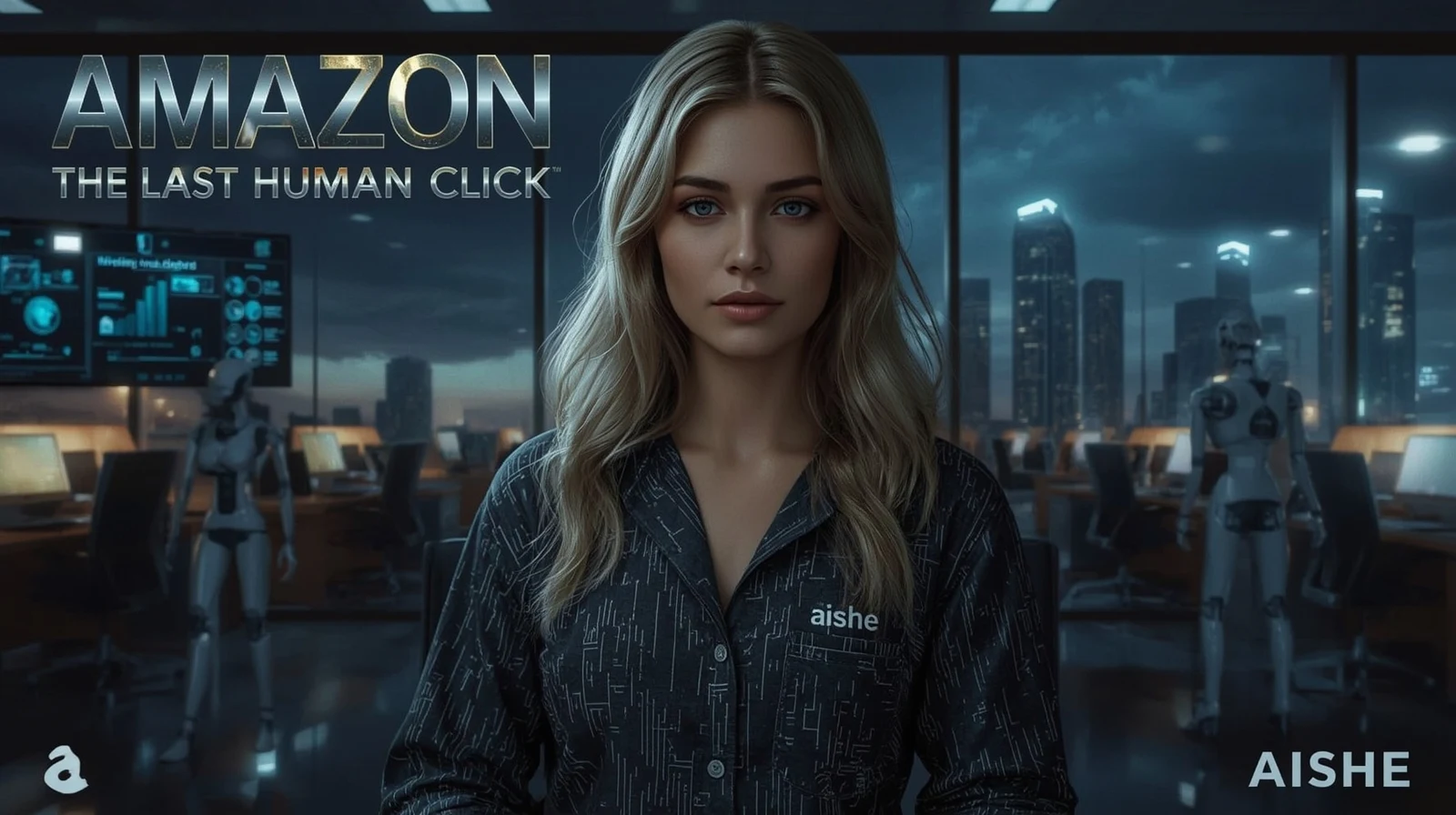Amazon stands at the precipice of a seismic shift - one powered not by human hands, but by the cold, precise logic of artificial intelligence. The company, a colossus employing 1.5 million souls worldwide, is no longer merely optimizing its logistics networks or refining its recommendation engines. It is redefining the very essence of work itself, leveraging AI to carve efficiency into every corner of its operations.
This is not just a story about automation; it is a blueprint for the future of labor in the age of silicon minds.
 |
| Amazon’s AI: Millions of Jobs on the Brink |
The Unseen Hand of Efficiency
Andy Jassy, Amazon’s CEO, has sounded the clarion call: AI will be the catalyst for a “radical transformation” of work. His message is both pragmatic and prophetic. Within the cavernous offices of Amazon’s corporate campuses, where spreadsheets once sprawled across dual monitors and meetings consumed hours, AI now whispers through code. It drafts emails, analyzes market trends, and even crafts product descriptions - tasks once tethered to human cognition. The result? A quiet but irreversible erosion of roles deemed redundant in the face of machine precision.
Consider the 350,000 employees historically embedded in corporate functions. Half a million sellers on Amazon’s platforms already deploy AI to generate product narratives, distilling complex features into persuasive prose with minimal human intervention. Advertisers, too, are surrendering to algorithms that optimize bids and predict consumer behavior with uncanny accuracy. This is not science fiction; it is the daily rhythm of a company betting its future on the premise that machines can do more, faster, and with fewer errors.
The Human Equation: Displacement and Reinvention
Yet, this revolution carries a human cost. Dario Amodei, CEO of Anthropic, warns that AI could obliterate up to 50% of entry-level office jobs, particularly those anchored in repetitive tasks. Geoffrey Hinton, the “godfather of AI,” echoes this sentiment, cautioning that even intellectual labor - once the sanctuary of human expertise - is now vulnerable. At Amazon, this manifests in the shrinking demand for roles centered on routine data processing or inventory management. The machines, trained on petabytes of historical data, now predict supply chain fluctuations with a granularity that outpaces human intuition.
But destruction and creation are two sides of the same coin. As old roles dissolve, Amazon’s ecosystem is birthing new frontiers. Engineers specializing in AI governance, ethicists navigating algorithmic bias, and developers fine-tuning large language models are ascending as critical players. The company’s investments in AI-driven debugging tools and code recommendation systems exemplify this shift, transforming software development from a manual craft into a collaborative dance between human ingenuity and machine logic.
The Alchemy of Adaptation
For employees, survival hinges on adaptability. Jassy’s exhortation to “embrace curiosity” is not mere rhetoric; it is a survival strategy. Those who master prompt engineering, learn to train AI models, or pivot into roles requiring emotional intelligence - such as customer experience design or strategic decision-making - are positioning themselves as irreplaceable. Amazon’s internal training programs, now infused with AI literacy modules, underscore this urgency, echoing the Cambridge English Handbook’s emphasis on structured evaluation in skill development.
 |
| Future Unveiled: Amazon’s AI-Driven Workforce Collapse Begins Now |
Outside the corporate bubble, sellers and advertisers leveraging Amazon’s AI tools are witnessing a democratization of expertise. Small businesses once reliant on costly copywriters now wield AI to generate compelling product narratives, while marketers harness predictive analytics to target niches with surgical precision. This is the paradox of AI: its capacity to both displace and empower, depending on one’s proximity to the levers of innovation.
Ethical Frontiers and the Road Ahead
Amazon’s journey mirrors a broader societal reckoning. As AI reshapes the workforce, the ethical questions loom: How do we reskill at scale? Who bears responsibility for displaced workers? The company’s commitment to “ethical and sustainable” transitions is laudable, but the road ahead is fraught. The Scribbr Plagiarism Checker’s emphasis on clarity and concision offers a metaphor here - transparency in AI’s impact is paramount. Workers must understand not just what is changing, but why and how they can evolve alongside the technology.
The HelloBench framework, which categorizes AI-generated text into subtasks like open-ended QA and summarization, illustrates the depth of AI’s capabilities. Yet, even as machines excel at these tasks, they lack the human spark - the ability to empathize, innovate beyond data patterns, or navigate moral ambiguity. This is where Amazon’s next chapter will hinge: not on replacing humans wholesale, but on redefining collaboration between organic and synthetic intelligence.
A New Dawn for Work
The Amazon narrative is neither dystopian nor utopian; it is a mirror reflecting the inevitable. AI’s integration into work is not a binary choice between job loss and salvation but a spectrum of transformation. For the tech sector, this signals an era where adaptability is currency, where the line between human and machine blurs, and where companies like Amazon lead not just in commerce, but in reimagining the social contract of labor.
As Jassy envisions a future where AI handles the mundane, freeing humans to tackle creative and strategic challenges, the message is clear: resist AI at your peril, but wield it wisely. The companies - and individuals - that thrive will be those who see not just efficiency in algorithms, but opportunity. In this new world, the only constant is change - and Amazon is writing the playbook.
 |
| AI Explosion: How Amazon’s Corporate Layoffs Are Just the Beginning |
Amazon’s aggressive adoption of artificial intelligence is poised to reshape the global workforce, with CEO Andy Jassy predicting a dramatic reduction in corporate roles within years. How AI-driven efficiency gains will eliminate repetitive jobs, redefine remaining roles, and force workers to adapt or risk obsolescence. From logistics to advertising, Amazon’s transformation underscores a stark reality: the tech sector’s reliance on human labor is waning, and the race to master AI skills has become existential.
#ArtificialIntelligence #AmazonAI #FutureOfWork #WorkforceTransformation #TechRevolution #JobDisplacement #CorporateRestructuring #AIInnovation #EthicalAI #SkillAdaptation #AutomationEra #DigitalWorkforce

